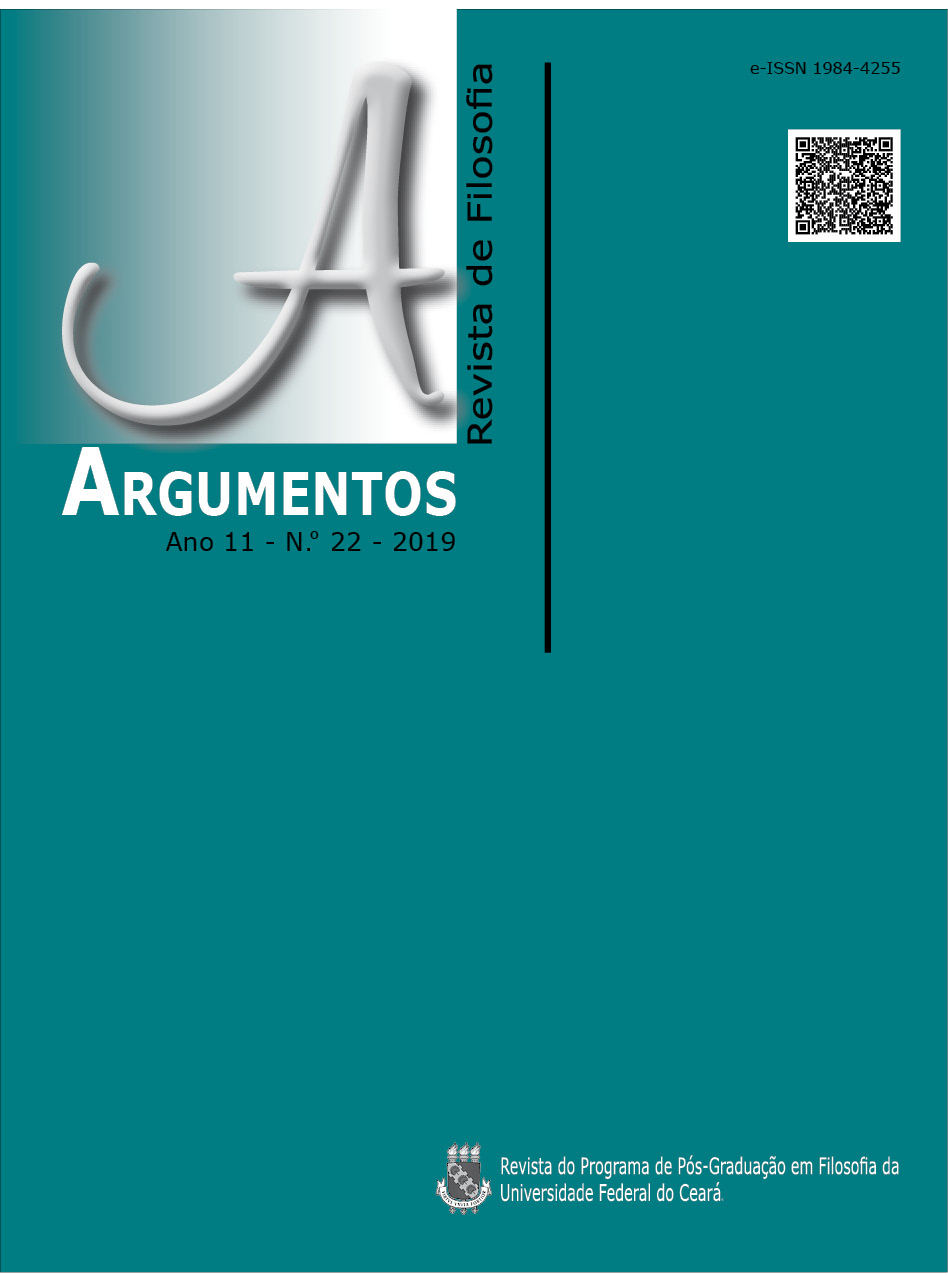Eternity and time: Plotinus and Augustine
DOI:
https://doi.org/10.36517/Argumentos.22.13Keywords:
Plotinus. Augustine. Soul. Time. Eternity.Abstract
Plotinus and Augustine have very similar perspectives in regard to eternity and time, even though the contexts in which they are inserted are very different. Plotinus will return to Greek philosophers in order to discuss eternity and time. Eternity belongs to the One, and time belongs to the world-soul. According to Augustine, eternity belongs to God’s being, and the oneness of His being lies in eternity. The notion of eternity corresponds to a “perpetual today”, always present. In relation to the idea of time that Augustine will have, this will be ephemeral, even as the human soul is ephemeral. At the end of this life, the human soul will return to the Creator, aware of its errors.References
AGOSTINHO. Confissões. Tradução de J. Oliveira Santos, S. J. e A. Ambrósio de Pina, S. J. São Paulo: Abril S. A, 1973.
BOYER, C. Études Sur Saint Augustin. Archives de Philosophie. Vol. III, cahier II, 1930.
NASCIMENTO, S. Erasmo e Lutero: distintas concepções de livre-arbítrio. São Paulo: Novas Edições Acadêmicas, 2015.
PLATÃO. As Leis. Tradução Edson Bini. São Paulo: Edipro, 1999.
PLATON. Oeuvres Completes. Tome Cinquième. Timée. Tradução de Émile Chambry Paris: Garnier Frères, 1954.
PLOTINO. Enéadas II. Tradução de José Antonio Miguez. Argentina: Aguilar, 1972.
________. Enéadas III. Tradução de José Antonio Miguez. Argentina: Aguilar, 1973.
________. Enéadas IV. Tradução de José Antonio Miguez. Argentina: Aguilar, 1973.
________. Enéadas V. Tradução de José Antonio Miguez. Argentina: Aguilar, 1967.
SZLEZÁK, T. A. Platão e Aristóteles na doutrina do Nous de Plotino. Tradução de Monika Ottermann. São Paulo: Paulus, 2010.
Downloads
Published
Issue
Section
License
Argumentos magazine is licensed under an International Creative Commons Attribution License.
The Magazine uses CC BY inclusion
1) The authors retain the copyright granted to the magazine or the right to initial publication, with the work regularly licensed under the Creative Commons Attribution, which allows the sharing of the work with acknowledgment of authorship and initial publication in this magazine.
2) The authors are authorized to contract additional applicable contracts, for non-exclusive distribution of the version of the work published in this journal (for example, publication in the institutional repository or as a chapter of the book), recognition of authorship and initial publication in this journal.
3) Authors are authorized and encourage to publish and distribute their work online (for example, in institutional repositories or on their personal pages) at any time before or during the editorial process, as they can generate productive changes, as well as increase the impact and reference of published work.




.jpg)










._._3.png)
1.jpg)
._._._.png)
